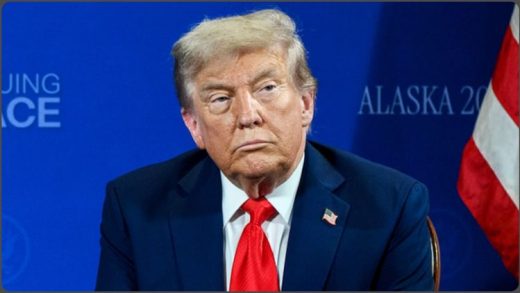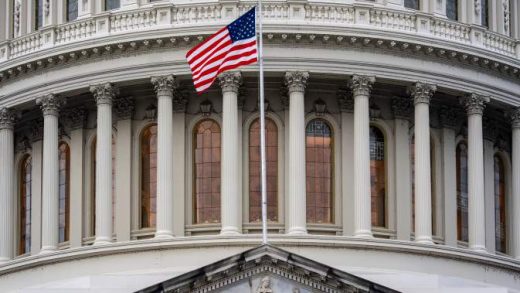
Opinion by: Carel van Wyk, CEO of MoneyBadger
“Hodl” is the rallying cry for many in the typical Bitcoin community because they believe they should spend “bad money” (fiat) and hoard “good money” (Bitcoin) as it may appreciate in value. But they misunderstand Gresham’s Law, which says, “Bad money drives out good,” because today, there is no reason to have bad money at all.
There is a fundamental problem with the hodl approach, particularly in countries where the local fiat is under siege, like South Africa.
It leads to people and governments seeing Bitcoin purely as a long-term savings asset, not a transactional currency. This is in direct contrast to Satoshi Nakamoto’s original white paper, “Bitcoin: A Peer-to-Peer Electronic Cash System.” It also directly contributes to Bitcoin’s (BTC) lack of broad adoption and use.
Saving vs. spending
Saving — aka hodling — always fulfills a particular purpose: to gather enough money to buy a house, a sports car or maybe early retirement. Even if you’re saving your “good money,” you’ll still have to convert it into fiat to pay for that house, car or early retirement.
Spending, by contrast, creates market demand for merchants to accept Bitcoin, strengthening Bitcoin’s utility and adoption. It also makes it easier for people and regulators to see Bitcoin as useful, practical money.
Related: Bitcoin is ‘made for us’: Africa’s first treasury company eyes unique opportunity
Right now, Bitcoin has an adoption problem: Enthusiasts push merchants to accept Bitcoin (“orange-pilling”), but nobody spends it because they’re hoarding Bitcoin. In response, frustrated merchants stop accepting Bitcoin, and it becomes hard to convince them to start accepting Bitcoin again. For example, South African payment processor PayFast accepted Bitcoin as far back as 2014 but dropped it five years later due to low usage.
Some say “just wait,” and that adoption will happen naturally when Bitcoin holders become wealthy enough. If nobody spends Bitcoin today, however, it will not develop into generally accepted money tomorrow.
It will remain “just” an investment vehicle, and regulators will continue to restrict its use as currency. “Just wait” also means hoarding Bitcoin while fearing short-term price drops, which makes you short Bitcoin today.
A better strategy is to keep saving and start spending. Have two wallets — one for savings, one for spending. (This also helps with your taxes. More about that later).
Spending builds the system
Why bother spending Bitcoin if you only want to build your fiat reserve? Using Bitcoin for regular purchases (groceries, coffee, small luxuries) reinforces Bitcoin’s use as a cash system, as intended. As more Bitcoin owners use their Bitcoin for daily purchases, it alerts merchants to the untapped market of Bitcoin spenders they can attract.
This encourages more merchants to offer it as a payment option, which opens up new avenues for Bitcoin penetration. Wallet providers can launch incentive programs and offer discounts on spending, driving additional sales for merchants. One South African provider, for example, offered 10% back in sats for shopping at Pick’n Pay, and Binance currently provides 50% back for any QR-code-based payment to a South African shop. Plus, using Bitcoin to pay directly saves time and reduces costs, as users avoid exchange fees, bank delays and conversion hassles.
Granted, one of the strongest practical arguments against spending Bitcoin is that each transaction must be included in your tax calculations, which leads to more complicated tax returns. In the future, we may see a rational approach from tax authorities, like the Australian Taxation Office’s view that crypto is an untaxed personal-use asset when it is used for day-to-day spending.
Meaningful Bitcoin adoption. I’ve learned a lot about that this year from working with Nigeria, conversations about Argentina, and, more recently, South Africa.
👇Fantastic chat with @gazza_jenks @staffordmasie @BitcoinEkasi @carelvwyk @MoneyBadgerPay https://t.co/aroYcyKTDY
— Robert Baggs (@rkbaggs) September 19, 2025
In the meantime, the practical solution for taxpayers in countries without Australia’s foresight is twofold. First, split your Bitcoin into one wallet for savings and one for spending, and then use automated tax calculation software to keep track of all your Bitcoin transactions. This simplifies your tax calculations and satisfies regulatory requirements.
The personal is political
Many people and crypto influencers focus on becoming rich in fiat terms and forget about Bitcoin’s original purpose. Bitcoin was designed to be a neutral, open-source form of money that is global, censorship-resistant and permissionless.
This leads us into the world of regulations, shaped by how people engage with new, disruptive technologies like Bitcoin. Physically spending Bitcoin at a grocer or coffee shop teaches you just how fast, easy and empowering it is compared to fiat. Bitcoin payments are often processed faster than a credit card for the same purchase.
Yet in October 2022, the SA government classified Bitcoin as a “financial instrument” (but not as money) because that is how most people see it. SA Reserve Bank deputy governor Kuben Naidoo said, “We are not intent on regulating it as a currency as you can’t really walk into a shop and use it to buy something. Instead, our view has changed to regulating [cryptocurrencies] as a financial asset.”
Bye-bye buying yourself a self-custody cappuccino without filling in cross-border money transfer forms.
Merchant activation projects change the narrative by enabling real-world usage. Spending Bitcoin then shifts from purely financial action to activism for monetary freedom. Right now, we see a continued increase in the volume of crypto transactions in the most prominent physical retailers and online e-commerce stores in South Africa.
Of these transactions, 67% are Bitcoin, followed by Tether’s USDt (USDT) (15%), XRP (XRP) (8%) and Ether (ETH) (4%). This comes as no real surprise. The geographies where Bitcoin is used most as a store of value and as a medium of exchange are also those where local currency is most at risk.
In South Africa, we have some of the most restrictive currency controls in the world, and we face the erosion of private property rights and promises of expanding government spending beyond what the economy can support. This evokes fears of hyperinflation, as happened to our neighboring country, Zimbabwe, resulting in South Africans of all walks of life looking to alternative forms of money to isolate them from the slow but steady decline of the rand. An example is the circular Bitcoin community blossoming along the Garden Route, one of South Africa’s key tourist destinations.
We are already seeing the effect of the regulatory authorities’ one-sided views. For instance, crypto payment service companies in SA have had their license applications delayed since November last year.
That’s because the Financial Sector Conduct Authority (FSCA), which issues financial instrument licenses, is trying to work within regulatory guidelines that don’t currently consider crypto a “means of payment” but only as a “financial instrument.” Many crypto payment service companies offer more than just wallets or exchanges (the “financial instruments”); they facilitate payments, too.
There is currently no licensing regime for crypto payments, however, so the FSCA is unsure if it is legally able to issue licenses. Regulators are currently trying to resolve this impasse via the SA Reserve Bank’s National Payment System department, delaying the issuing of licenses. Similarly, there is no final resolution on whether cryptocurrencies fall under South Africa’s exchange control policies, and court cases like the current Standard Bank vs. SARB case will continue for years.
Bitcoin’s future usefulness brings to mind Charles Dickens’ opening line of “A Tale of Two Cities,” his epic novel set just before the French Revolution: “It was the best of times, it was the worst of times, it was the age of wisdom, it was the age of foolishness, it was the epoch of belief, it was the epoch of incredulity.”
Decide your belief: Should Bitcoin be money or just a speculative asset? Or can it be both?
If you believe in Bitcoin as money, use it as money, save it and spend it like you do money. Because owning Bitcoin that keeps on increasing in value — but never using it — is like owning a sports car you never drive.
Oh, and those two wallets? Nobody is saying “spend your stack.” View your savings wallet as your “number go up” stash and your spending wallet as your “make a difference” fund. And then do your bit for the revolution.
Adoption doesn’t happen by hoarding. It happens by spending. You’ve hodled. Now go spend.
Opinion by: Carel van Wyk, CEO of MoneyBadger.
This article is for general information purposes and is not intended to be and should not be taken as legal or investment advice. The views, thoughts, and opinions expressed here are the author’s alone and do not necessarily reflect or represent the views and opinions of Cointelegraph.


